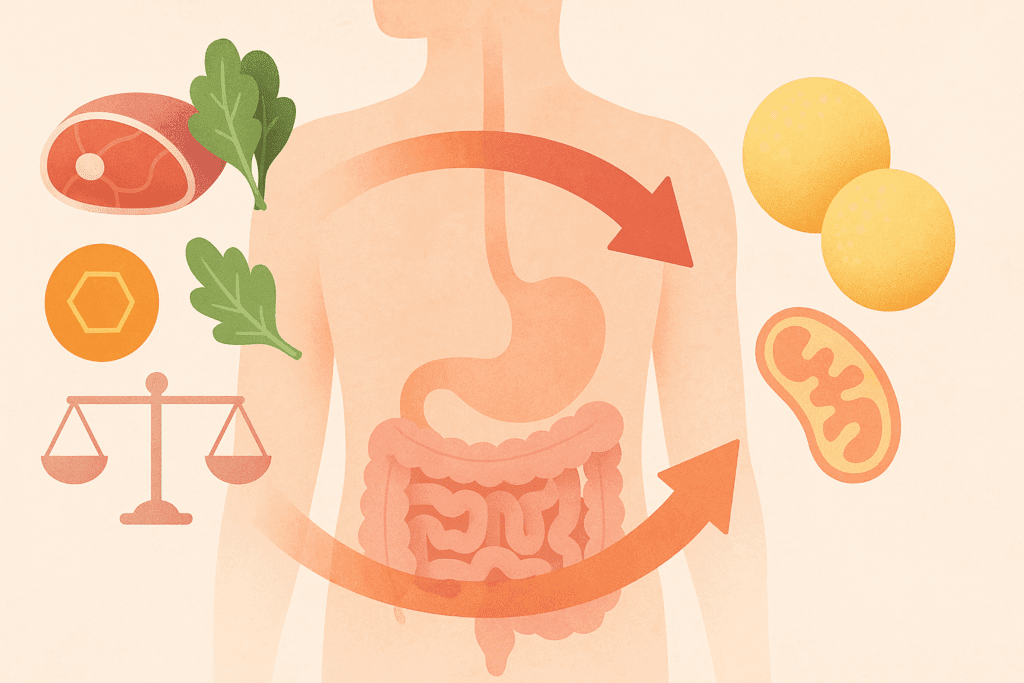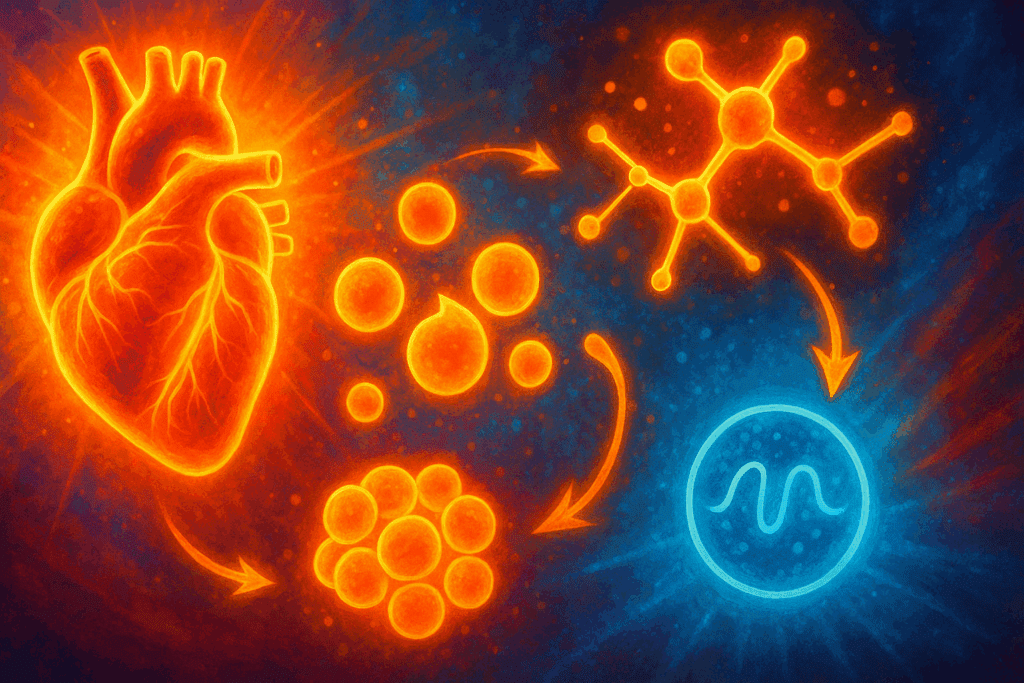Introduction: Why Low Carb, Low Fat Diets Deserve a Closer Look
When it comes to long-term weight loss and sustainable health outcomes, dietary choices are foundational. Among the growing variety of strategies, low carb meals for weight loss have earned particular attention from healthcare professionals and researchers alike. The premise is relatively straightforward: by reducing carbohydrate intake, particularly refined carbohydrates, the body shifts toward using stored fat as a primary energy source. When this principle is paired with a low fat approach that minimizes excess calories without sacrificing nutritional adequacy, the result is a dietary framework that supports healthy, science-backed fat loss.
You may also like: Expert-Backed Weight Loss Tips for a Healthier Lifestyle: What You Need to Know for Long-Term Weight Control and Wellness

Understanding the Science Behind Low Carb Meals for Weight Loss
The popularity of low carb eating is often rooted in its initial, sometimes rapid, weight loss results. Yet, not all low carb plans are created equal, and not all lead to sustainable or safe outcomes. That is why many physicians and registered dietitians emphasize the importance of medically guided, doctor-recommended low carb meal planning—especially when the goal is to reduce body fat while preserving lean muscle mass and metabolic function. What makes a low carb, low fat diet truly effective is not just the reduction of certain macronutrients, but the quality, timing, and composition of meals that prioritize whole foods, adequate protein, and metabolic balance.

Building Blocks of a Healthy Low Fat, Low Carb Diet
One of the core tenets of effective low carb meals for weight loss is the emphasis on nutrient density. Whole foods like leafy greens, non-starchy vegetables, lean proteins such as chicken, turkey, or tofu, and healthy fats from sources like avocados and nuts serve as foundational ingredients. These foods support not just weight loss but also satiety, blood sugar control, and cardiovascular health. Incorporating high-fiber vegetables and strategic protein helps stabilize insulin levels, preventing the spikes and crashes that often contribute to overeating or cravings.
Balancing Fats Without Compromising Health
While some diets lean heavily on fat to compensate for carb reduction, doctor-recommended approaches often suggest a low fat, low carb balance that reduces overall caloric density. This strategy not only supports heart health but also aligns with the growing body of research suggesting that moderate fat intake—especially when derived from monounsaturated or polyunsaturated sources—can enhance lipid profiles without adding unnecessary calories. When these fats are consumed in moderation and combined with plant-based proteins and high-fiber carbs like legumes or whole grains in small portions, the result is a balanced, metabolically intelligent meal structure.

Why Meal Timing Matters in Low Carb Dieting
Beyond macronutrient composition, another often overlooked element in low carb meals for weight loss is meal timing. Emerging research in chrononutrition—the study of how meal timing influences metabolism—suggests that front-loading calories earlier in the day may support better glycemic control and fat oxidation. In practice, this means that larger meals earlier in the day and smaller, lighter meals in the evening may enhance metabolic efficiency. For those adhering to low fat, low carb eating, this might translate into a protein-rich breakfast with vegetables and a moderate portion of healthy fats, followed by lighter meals as the day progresses.
Nutrient Sufficiency: Avoiding Common Deficiencies
What distinguishes safe and effective low carb diets is also the attention to micronutrient sufficiency. A diet low in both carbohydrates and fats can risk nutrient deficiencies if not carefully planned. Essential nutrients like magnesium, potassium, calcium, and certain B vitamins are often found in whole grains, fruits, and dairy—foods that may be limited on stricter low carb diets. Therefore, healthcare providers often recommend a diversified selection of vegetables, fortified plant milks, seeds, and occasional fruits such as berries to fill these nutritional gaps. Doctor-supervised supplementation may also be advised when necessary to ensure nutritional adequacy.
Satisfaction Without Deprivation: Making Low Carb Meals Enjoyable
The psychological and behavioral aspects of low carb eating are equally crucial. Many people associate carbohydrate restriction with deprivation or monotony, yet this does not have to be the case. In fact, the best low carb meals for weight loss are often colorful, flavorful, and satisfying. Recipes like grilled salmon over cauliflower rice, zucchini noodles with turkey meatballs, or vegetable stir-fry with tofu and coconut aminos provide variety and pleasure while remaining within nutritional targets. When meals are enjoyable and diverse, adherence improves significantly—supporting both immediate weight loss and long-term maintenance.

Metabolic Benefits Beyond the Scale
In addition to weight reduction, doctor-recommended low carb, low fat diets have shown promising results in improving several key metabolic health markers. Studies indicate that these dietary approaches may help reduce visceral fat, lower triglyceride levels, and improve HDL cholesterol. Furthermore, individuals with insulin resistance or prediabetes may particularly benefit from reduced carbohydrate loads, as this dietary structure can assist in re-sensitizing insulin receptors and reducing circulating glucose levels. However, such metabolic improvements are more likely to occur when these eating patterns are customized to individual health profiles and monitored by healthcare providers.
Appetite Control and Hormonal Harmony
An important concept to consider is how low carb, low fat meals affect hunger hormones such as ghrelin and leptin. Research shows that diets high in refined carbs tend to dysregulate these hormones, contributing to cycles of hunger and satiety that make weight loss difficult. Conversely, when meals are balanced with adequate protein and fiber while remaining low in both fat and carbohydrates, hunger cues become more stable. This leads to more consistent energy levels, reduced cravings, and better appetite regulation. These physiological changes can make the difference between transient weight loss and a successful long-term lifestyle shift.
Customization and Individualization in Dietary Planning
The customization of low carb meals for weight loss is another essential factor in their success. Not every individual responds the same way to dietary changes due to variations in genetics, gut microbiota, physical activity levels, and existing health conditions. For instance, while one person may thrive on a moderately low carb intake, another may require more substantial carbohydrate reduction to see results. Similarly, athletes or those with higher energy demands may need tailored adjustments to maintain performance while still achieving fat loss goals. Healthcare professionals are best equipped to assess these variables and design a plan that aligns with each patient’s needs.

Plant-Based Strategies for Enhanced Outcomes
Moreover, integrating plant-based principles into low fat, low carb diets can further enhance their health benefits. Legumes, lentils, non-starchy vegetables, seeds, and fermented foods offer a spectrum of phytonutrients, prebiotics, and antioxidants that support gut and immune health. While legumes contain carbohydrates, their high fiber content and low glycemic index make them suitable in modest portions even within lower carb plans. The emphasis on plant-forward eating ensures that meals remain rich in flavor, color, and texture without exceeding macronutrient targets.

Hydration and Electrolyte Balance for Low Carb Success
Hydration also plays a central role in the success of any weight loss strategy, including low carb approaches. As glycogen stores are depleted through reduced carbohydrate intake, water loss often follows, which can lead to dehydration if not adequately addressed. Drinking water throughout the day, incorporating hydrating foods like cucumbers and leafy greens, and monitoring electrolytes—especially sodium and potassium—becomes vital. Some individuals may experience symptoms like headaches or fatigue during the initial transition to low carb eating, which are often mitigated by proper hydration and electrolyte support.
Enhancing Results with Physical Activity
The synergy between physical activity and nutrition further amplifies the effectiveness of low carb meals for weight loss. Resistance training, in particular, helps preserve lean body mass during caloric reduction, which is essential for maintaining metabolic rate. When paired with a protein-rich, low fat, low carb meal plan, exercise enhances fat loss, promotes hormonal balance, and improves body composition. Incorporating movement daily—whether through structured workouts, walking, or functional activities—supports the physiological shifts initiated through dietary changes.
Accessibility and Cultural Adaptability of Low Carb Eating
From a public health perspective, the adaptability of low carb, low fat diets makes them particularly valuable. They can be tailored to a range of dietary preferences and cultural traditions. Whether someone follows Mediterranean-style eating, vegetarian principles, or prefers a more omnivorous pattern, low carb meals for weight loss can be designed to reflect those values while maintaining nutritional balance. This flexibility enhances accessibility and promotes inclusivity, encouraging broader adoption across diverse populations.
Empowering Individuals Through Education and Awareness
One of the most significant advantages of this approach is its potential to improve food literacy and empower individuals to take control of their health. When people learn how to build satisfying meals that are low in both carbohydrates and fats without compromising taste or nutrition, they gain the tools to make healthier choices consistently. Education around label reading, glycemic load, cooking techniques, and portion sizes enhances confidence and supports behavioral change. Over time, these habits become self-sustaining and lead to lasting improvements in weight and health.
The Interconnected Role of Stress, Sleep, and Diet
It is also critical to acknowledge the role of stress, sleep, and emotional health in the context of dietary success. Chronic stress and inadequate sleep are well-documented disruptors of metabolic health and can undermine even the most well-planned low fat, low carb diet. Elevated cortisol levels, for instance, increase fat storage—particularly in the abdominal region—and drive cravings for high-sugar, high-fat foods. Addressing these factors through stress-reduction techniques, improved sleep hygiene, and, when necessary, professional counseling can profoundly impact weight loss outcomes.
Frequently Asked Questions: Doctor-Recommended Low Carb Meals for Weight Loss and Low Fat, Low Carb Diets
1. Can a low fat, low carb diet work for athletes or highly active individuals? Yes, but it requires careful planning to avoid compromising performance. Athletes or people with high energy demands may benefit from modified versions of low fat, low carb diets that still support glycogen replenishment and muscle recovery. In these cases, strategic carb intake—often in the form of low glycemic index carbohydrates like lentils or sweet potatoes—is included around workouts. Low carb meals for weight loss can be adapted to include slightly higher carb content on training days without sacrificing fat loss goals. The key is to maintain overall caloric control while ensuring protein and micronutrient sufficiency.
2. How does a low fat, low carb approach affect long-term metabolic adaptation? Over time, your metabolism can adapt to reduced carbohydrate intake by becoming more efficient at oxidizing fat. However, metabolic adaptation also means that weight loss may slow down after initial success. To prevent this plateau, cycling calories, varying exercise intensity, and incorporating refeed days with moderate carbohydrate intake may help. Low fat, low carb strategies need to be dynamic and responsive to your body’s signals. Ongoing support from healthcare providers or dietitians can help ensure long-term success and metabolic resilience.
3. What psychological shifts are common during the transition to low carb meals for weight loss? Many individuals initially experience a sense of restriction, especially if they previously relied heavily on carbohydrate-rich comfort foods. However, this phase often gives way to greater dietary awareness and mindfulness. As people begin experimenting with flavorful, creative low carb recipes, they often rediscover satisfaction in food preparation and eating. Additionally, some report improved mental clarity and emotional stability as blood sugar fluctuations become more controlled. Building a routine around enjoyable low fat, low carb meals can enhance consistency and reduce decision fatigue.
4. Are there specific populations who should avoid low fat, low carb diets? Yes, certain individuals—such as pregnant women, people with a history of eating disorders, and those with kidney disease—should avoid or significantly modify these plans. For instance, pregnancy increases nutritional needs for both carbohydrates and healthy fats, making strict low fat, low carb diets inappropriate. People with chronic kidney disease may need to limit protein, a common staple in low carb meals for weight loss. It’s critical to consult a healthcare provider to determine whether this dietary approach aligns with your personal health profile.
5. What emerging research supports low fat, low carb eating patterns for disease prevention? Recent studies are exploring how low fat, low carb diets influence inflammation, oxidative stress, and gut microbiome diversity. Preliminary evidence suggests that when these diets are rich in anti-inflammatory foods—like cruciferous vegetables and omega-3-rich fish—they may reduce risk factors associated with cardiovascular disease and type 2 diabetes. Some researchers are also studying how these meal patterns might influence longevity and age-related metabolic decline. While more long-term studies are needed, the existing data supports incorporating nutrient-dense low carb meals for weight loss as part of a broader disease prevention strategy.
6. How can I make low fat, low carb meals more affordable on a tight grocery budget? Contrary to popular belief, healthy eating doesn’t have to be expensive. Beans, eggs, frozen vegetables, canned fish, and tofu are all affordable staples that can support low fat, low carb dietary goals. Batch cooking and meal prepping not only save time but also reduce the cost per serving of nutrient-dense meals. Shopping seasonal produce, using bulk bins, and planning meals in advance can help you stick to your goals without overspending. Even simple combinations—like stir-fried cabbage with eggs or lentil-based soups—can serve as effective low carb meals for weight loss.
7. Can low fat, low carb diets improve sleep quality and hormonal balance? Yes, especially when blood sugar stability is improved through better meal composition. Stable insulin levels can help regulate cortisol, which in turn supports deeper sleep cycles and more consistent energy levels throughout the day. Additionally, many low carb meals for weight loss contain high-quality proteins that support the synthesis of melatonin and serotonin, both of which are critical for healthy sleep. For women, some research suggests these dietary patterns may improve estrogen balance and reduce symptoms of PCOS. However, results can vary, and personalization is essential.
8. How do social settings and cultural food traditions impact adherence to low fat, low carb eating? Social dynamics play a huge role in dietary consistency. Navigating celebrations, holidays, or dinners with friends can be challenging without proper planning. However, you can still participate fully by making mindful swaps—such as opting for roasted vegetables instead of rice or choosing lean grilled meats over creamy dishes. Communicating your goals with supportive family or friends helps, too. Many cultural cuisines can be adapted to align with low carb meals for weight loss without compromising tradition, making it easier to sustain the approach long term.
9. What role do fermented foods play in a low fat, low carb lifestyle? Fermented foods like kimchi, sauerkraut, kefir, and plain yogurt are often low in both carbs and fat while offering powerful probiotic benefits. These foods support gut health, which in turn affects metabolism, immunity, and even mood. Including small servings of fermented items in low carb meals for weight loss can enhance digestion and nutrient absorption. Additionally, they add unique flavor profiles that can make meals more satisfying without relying on extra fat or carbohydrate content. As part of a comprehensive plan, they can be a smart addition to your daily routine.
10. What are the biggest myths about low fat, low carb diets that people still believe? One persistent myth is that these diets automatically result in nutrient deficiencies or energy crashes. While this can happen with poorly planned versions, well-structured low carb meals for weight loss are nutritionally complete and sustainable. Another misconception is that fat loss only occurs with extreme restriction, when in reality, moderate and strategic planning often leads to better results. Many people also mistakenly believe that carbs must be eliminated entirely, but most doctor-recommended plans include small amounts of fiber-rich carbohydrates. When done correctly, low fat, low carb diets can enhance—not restrict—your quality of life.
Conclusion: The Lasting Benefits of Low Fat, Low Carb Diets When Guided by Experts
Ultimately, the evidence supports that low carb meals for weight loss, when carefully designed with low fat principles in mind, can offer a powerful and sustainable path toward fat loss and metabolic health. However, as with any dietary strategy, individualization and professional oversight remain key. What works for one person may not work for another, and ongoing support from registered dietitians or physicians helps ensure that nutritional needs are met, risks are minimized, and progress is maintained.
For those considering this approach, the first step should always involve consultation with a healthcare provider. Lab testing, body composition analysis, and a thorough health history can inform the most appropriate macronutrient targets and meal structures. With expert guidance, low fat, low carb diets become more than a trend—they become a therapeutic tool for optimizing body composition, enhancing energy, and supporting long-term wellness.
Reflecting on the evidence and insights presented, it is clear that doctor-recommended low carb meals for weight loss offer far more than superficial changes on the scale. When implemented thoughtfully, these low fat, low carb dietary strategies address root causes of metabolic dysfunction, promote hormonal balance, and foster sustainable lifestyle habits that extend beyond dieting. The journey toward healthier body composition begins with informed choices—and with the right guidance, these choices become not only effective, but empowering.
Further Reading:
A Low Carb Meal Plan and Menu to Improve Your Health


